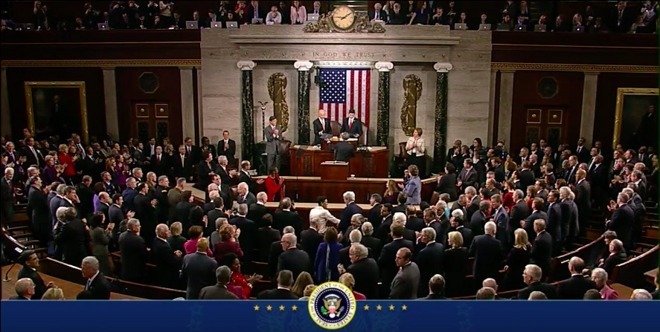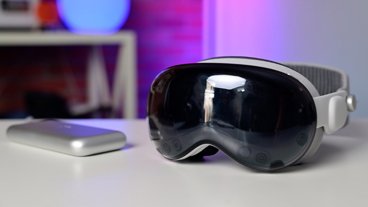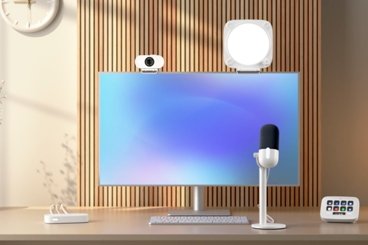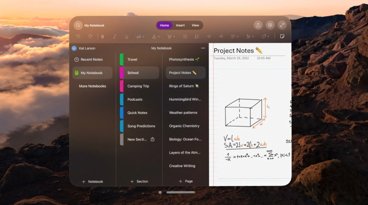Apple will likely be unaffected by the federal election results, but inside California is a different story
Democrats gained control of the House of Representatives, meaning divided government and changes in how Washington works — and AppleInsider takes a look at possible implications for Apple's initiatives in Washington D.C., and on a more local level how the company may have to spend in its home state.
The 2016 State of the Union address, where probable new House Speaker Nancy Pelosi checked her Apple Watch
The 2018 midterm election results are in the books, and while both major parties can point to victories in Tuesday's vote, the headline is that the Democrats have captured a majority in the U.S. House of Representatives. Meanwhile, Republicans expanded their majority in the U.S. Senate.
The change almost certainly means two years of gridlock in Washington unless the parties actually decide to work together, and therefore less of a possibility of major legislation passing in that time. And while the new Congress is unlikely to bring about major changes for Apple, differences are possible at the margins.
Apple's lobbying and contributions
Apple does not have a political action committee, nor does it directly endorse candidates. Apple executives themselves have been known to donate, although Tim Cook's lone political contribution in the current cycle, according to the FEC, was a $2,700 donation to Rep. Zoe Lofgren, a California Democrat who won on Tuesday. It's part of a trend, described by the Washington Post, of Silicon Valley leaders largely staying on the sidelines in this year's election.
However, according to OpenSecrets.org, Apple employees donated $1.4 million to candidates in the cycle, with unsuccessful Democratic Texas Senate candidate Beto O'Rourke the top recipient.
Apple spent $1.33 million on lobbying in the third quarter of 2018, according to its most recent disclosure, and the company has spent about $5 million overall in lobbying expenditures in 2018. The main issues included everything from patent reform to music licensing to piracy to corporate tax reform implementation to education technology funding.
None of these are likely to be near the top of the legislative agenda in 2019. It's even less likely that the next two years will see a repeat of the tax reform package that passed in late 2017, with Apple's support.
There's always a chance that some currently unforeseen controversy or issue involving Apple will rise to the forefront, leading to Congressional hearings or other action by lawmakers. What they may look like is unclear, but we do know that Apple will soon direct their lobbying energies towards have different lawmakers
New leadership
Rep. Nancy Pelosi (D-CA), the Democratic leader in the House of the Representatives for the past 16 years, is expected to once again become Speaker of the House. Pelosi represents Northern California, where Apple is located, although her history related to Apple is somewhat checkered.
Checking her circles @NancyPelosi #AppleWatch pic.twitter.com/UkiJBa4mTY
— Daniel Eran Dilger (@DanielEran) January 13, 2016
The presumed next speaker, according to a disclosure form this year, owns a significant amount of Apple stock, most likely through her husband Paul. A known user of Apple products, Pelosi was spotted glancing at her Apple Watch during the State of the Union address in 2016. Also in 2016, Pelosi criticized Apple's Tim Cook after he hosted a fundraiser for current Republican House Speaker Paul Ryan.
Pelosi then drew criticism, during a Democratic National Committee meeting a few months later, when she held up an iPhone and stated that "in this smartphone, almost everything came from federal investments and research," going on to state that "Steve Jobs did a good idea of designing it and putting it together. Federal research invented it."
Her statement giving credit to "federal research" was demonstrably wrong, though. A spokesman for Pelosi later stated that the Congresswoman "counted Steve Jobs as friend and meant no disrespect to his legacy."
The change in House control also means a change in leadership for each committee in that body. Earlier this year, the House Energy and Commerce Committee wrote a letter to Apple about its data protection policies. The current top Democrat on that committee is Frank Pallone of New Jersey, who is expected to take the gavel. Pallone hasn't made a lot of public comments about Apple, although his wife, Sarah Hospodor, worked at the Environmental Protection Agency under Lisa Jackson, the then-EPA administrator who is now Apple's Vice President of Environment, Policy and Social Initiatives.
The House Judiciary Committee, back in 2016, held a memorable hearing at which Apple's Bruce Sewell went head to head with then-FBI director James Comey. In the event that Apple is ever brought before that committee again, Democrat Jerry Nadler of New York is expected to take that gavel.
Elsewhere in the House results, Rep. Duncan Hunter (R-CA), whose recent federal indictment alleged (among many other things) that he had made multiple improper purchases at Apple Stores, was re-elected to another term.
State by state
Flashback. #SteveJobs, #GavinNewsom & #WillieBrown at ribbon ceremony for opening of 1st #SanFrancisco #AppleStore. Circa 2004. #Apple pic.twitter.com/R7TAMKzOgz
— ZenCupcake {Robyn} (@MyZenCupcake) April 10, 2017
Apple's home state of California will have a new governor, Gavin Newsom. The former San Francisco mayor and California Lieutenant governor has been a booster of the tech industry in the past, even appearing with Steve Jobs at the opening of San Francisco's first Apple Store in 2004. But Newsom has at times been critical of the industry's power, as he previewed the phone call he plans to make to Tim Cook should he win in a recent interview with USA Today.
"Here's a preview of a call I'm going to make to (Apple CEO) Tim Cook if I'm governor... I'm going to say, Tim, let's get together this week... Congratulations, all these (corporate) tax cuts and repatriated (overseas) earnings present an extraordinary opportunity to make investments in your backyard, ones that address your fiduciary responsibilities to your shareholders but also recognize the broader, negative social issues that have been the unintended byproduct of your success," said Newsom. "The answer is no until you ask... But I want to have these conversations."
California Attorney General Xavier Becerra, who brought charges against those responsible for the recent Apple Store theft ring in that state, was re-elected Tuesday. Ro Khanna, the Democratic Congressman who represents Cupertino and much of the rest of Silicon Valley, was re-elected as well.
In Wisconsin, Gov. Scott Walker was defeated in his tight re-election race by Democrat Tony Evers. A key issue in that race the controversial deal Walker struck with Apple supplier Foxconn to build a plant in that state.
In North Carolina, reports earlier this year stated that Apple was nearing an announcement to place a new corporate campus in the Research Triangle area of the state. But as of August, reports stated that Apple had some concerns about proposed constitutional amendments in the state. On Tuesday, North Carolina voters delivered a mixed verdict, as amendments to restrict the governor's powers failed, while voters approved a voter ID requirement.
What comes next
It's exceedingly unlikely that Apple will be anywhere near the forefront of Congress' business in the new year. Any effect Tuesday's results will have on Apple will likely not be known for awhile.
What probably won't change is Tim Cook and Apple's generally cordial relationship with the Trump Administration, and their posture of pushing the administration for legislation and regulatory policy in its interest while chiding it for policies they oppose.
 Stephen Silver
Stephen Silver












 Malcolm Owen
Malcolm Owen
 William Gallagher and Mike Wuerthele
William Gallagher and Mike Wuerthele
 Christine McKee
Christine McKee
 William Gallagher
William Gallagher

 Marko Zivkovic
Marko Zivkovic









